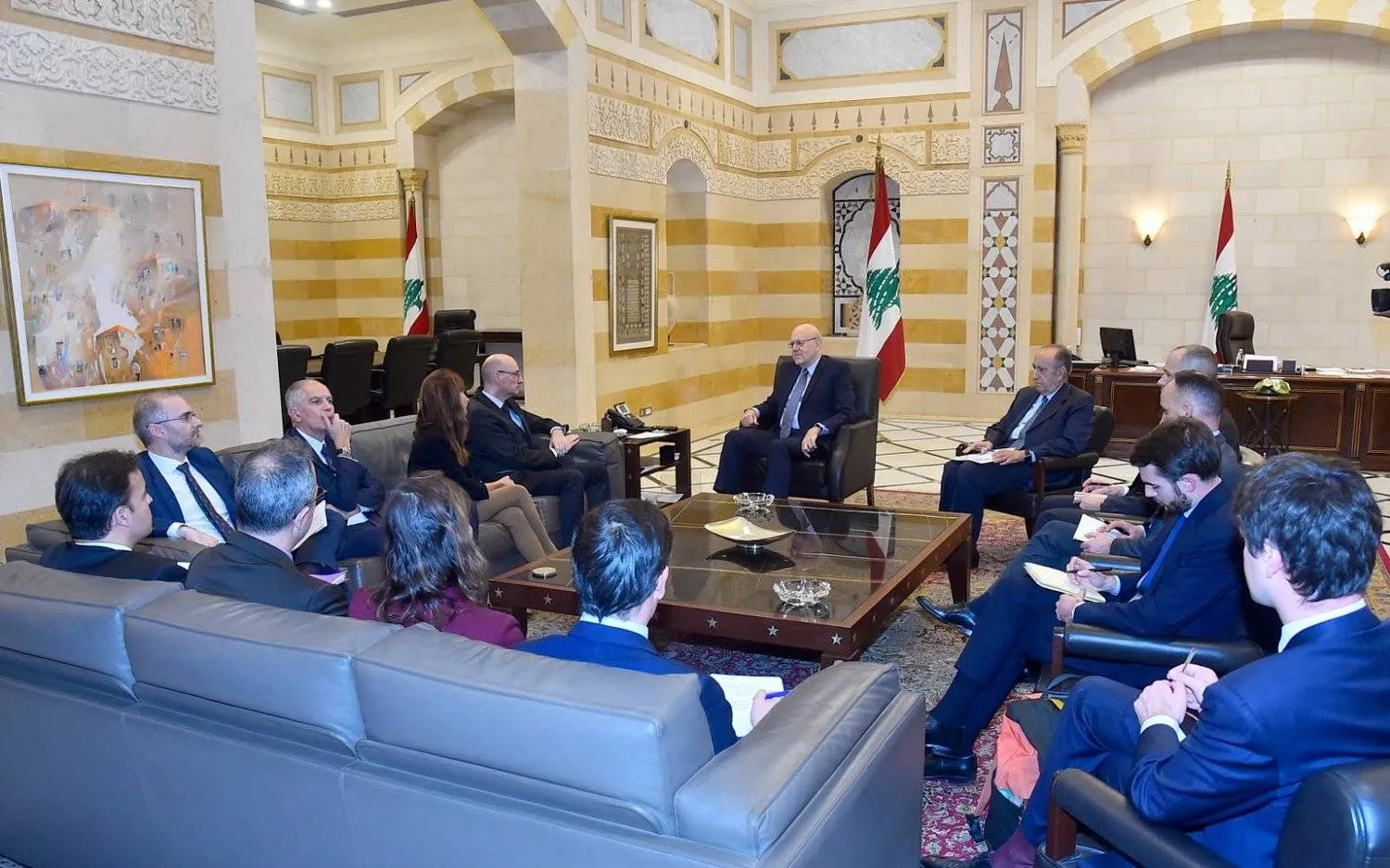While France may acknowledge the growing challenge in foreseeing the election of a president in Lebanon, it has not yielded in its efforts to avert a leadership void in the country's paramount Maronite institution, the Lebanese army.
This comes after a year-long vacuum in the presidency and another void in the governance of the Central Bank of Lebanon.
The recent visit of the French presidential envoy, Jean-Yves Le Drian, to Lebanon focused on this issue.
France’s strategy pivots towards the notion of “overcoming grievances.”
It implores the Lebanese to fulfill their “duty” by electing a president, aiming to reinstate constitutional order in a nation suffering from a profound economic and financial crisis.
Moreover, Lebanon confronts the mounting likelihood and considerable peril of being entangled in the persisting conflict in Gaza—a scenario separate from the minor attrition war orchestrated by Hezbollah along the southern borders, ostensibly in the name of “supporting the Palestinians.”
France senses a significant danger looming over Lebanon, with confrontations occurring at its southern borders and the threat of military and security vacuum haunting the country.
All these factors put its diplomacy on high alert.
This might explain the successive visits, both announced and undisclosed, by French officials to Lebanon in recent days, including a joint delegation from the defense and foreign ministries.
The deployment of 700 French soldiers in the UN Interim Force in Lebanon (UNIFIL) makes their readiness even more pronounced.
According to French diplomatic sources, the vacuum in the army’s leadership is “a security threat to France at the same level as the threat to Lebanon's security.”
Moreover, there is an Israeli threat hovering over Lebanon, and while the issue of the presidential election may wait for some time despite its importance, the vacuum in the leadership of the Lebanese army poses an immediate and unavoidable security nightmare.
France, as per a source who requested anonymity, will not intervene in “how to prevent the vacuum.”
Preventing a power vacuum may be achieved by either extending the term of Army Commander General Joseph Aoun or by filling the gap in the General Staff that could replace the army commander when his term ends in January.
“France does not insist on extending the army commander’s term,” the source told Asharq Al-Awsat, explaining that French officials have informed their Lebanese counterparts to do “what they deem appropriate to prevent the vacuum at the top of the military institution.”
The source also notes that Le Drian received assurances from Lebanese officials that the matter is being addressed.
France has taken steps to pressure Lebanese officials in this regard, and a decision has been made to link aid allocated to the army and cooperation projects with resolving this issue.









